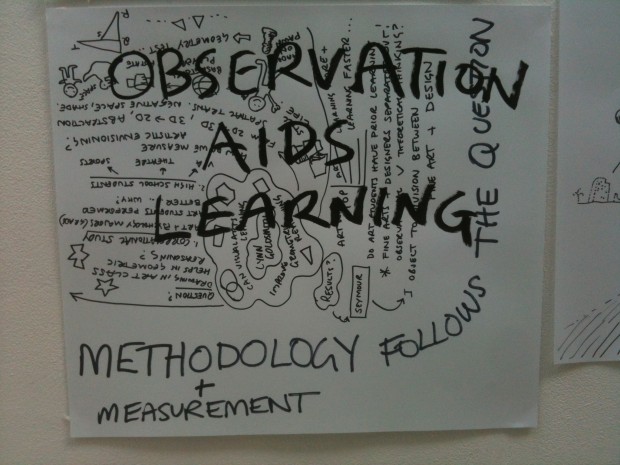… how?
 I approach each group of students as my peers. They are professionals, but in a academic framework. Theatre’s powerhouses of research and development are the rehearsal room and workshop, and around that are meetings between two or more creative, technical and administrative makers: hopefully affirmative meetings that drive a project forward, or reflect on questions that puzzle, and compel us to resolve matters collectively.
I approach each group of students as my peers. They are professionals, but in a academic framework. Theatre’s powerhouses of research and development are the rehearsal room and workshop, and around that are meetings between two or more creative, technical and administrative makers: hopefully affirmative meetings that drive a project forward, or reflect on questions that puzzle, and compel us to resolve matters collectively.
Each group of artists and designers approach and create conditions differently, depending on their histories and expertise. The mix can be surprising and challenging – it’s why we get up in the morning and do it all over again. What develops is unique to each group and its collective strength relies on a transparent honesty between, and an unconditional trust of, each other. Without that ‘safety net’, risks are an impossibility.
Academic courses are often predicated on assessment, judgement, and ultimately the gain or loss of a rite of passage from one level to another. In a world that measures quantitatively, little is learned other than a sense of inadequacy,… unless the ranking is coupled with critical insight and range of offered options for progression.
I aimed to bring the generosity of a theatre company into my leadership of the MA Drawing course. There is a long history of making work together, in the same space , in both the rehearsal and life room. Both require a special level of trust and spirit of adventure.
The community of practice that I aim to support in partnership with each generation of artists, designers and makers modestly aims to offer only that.
